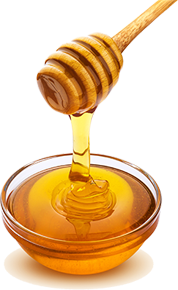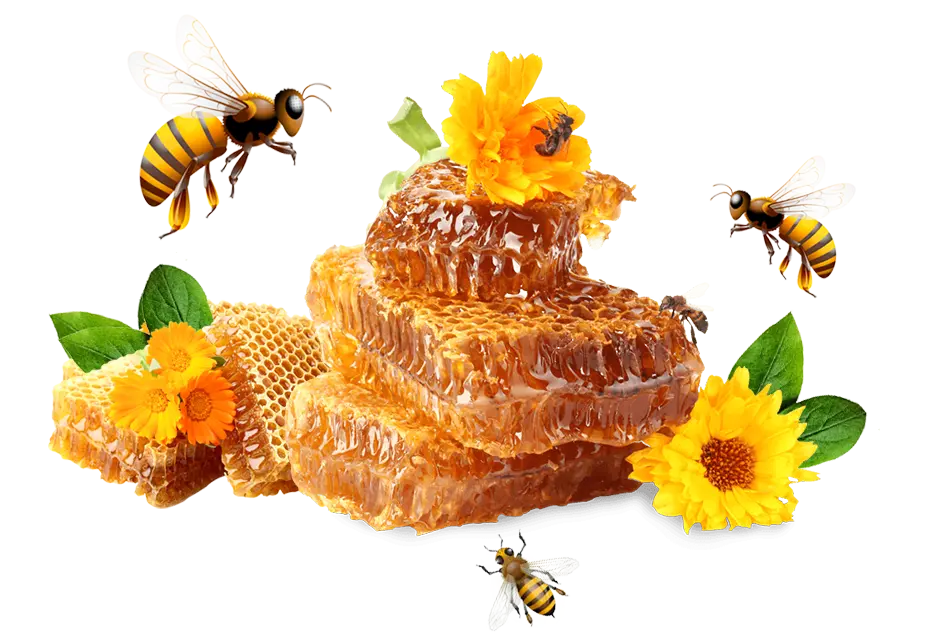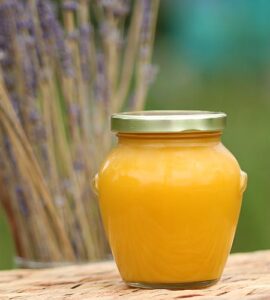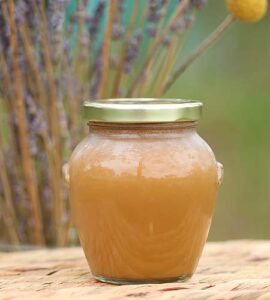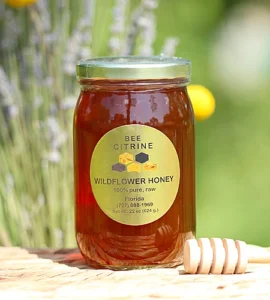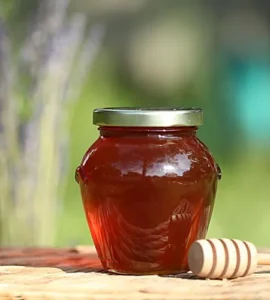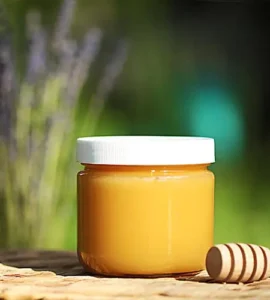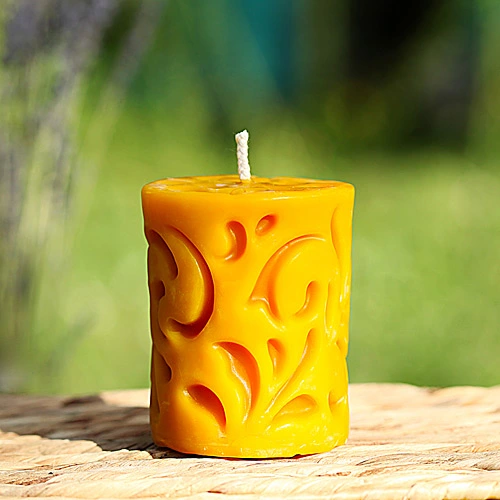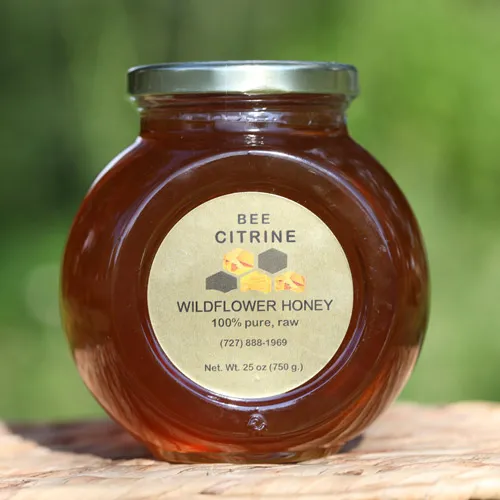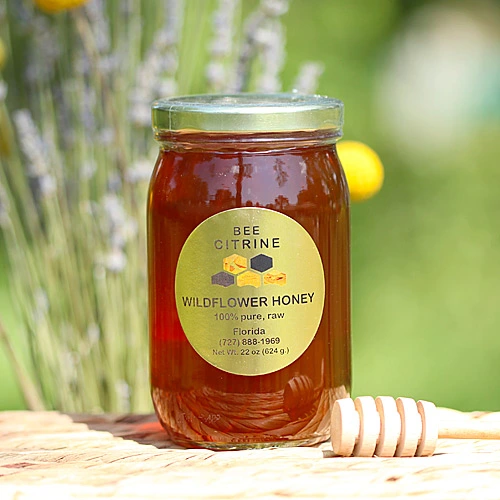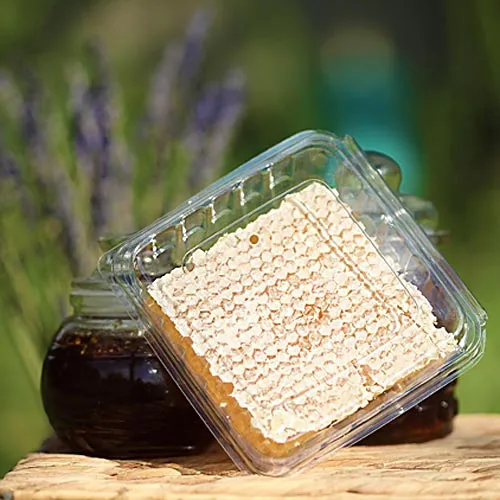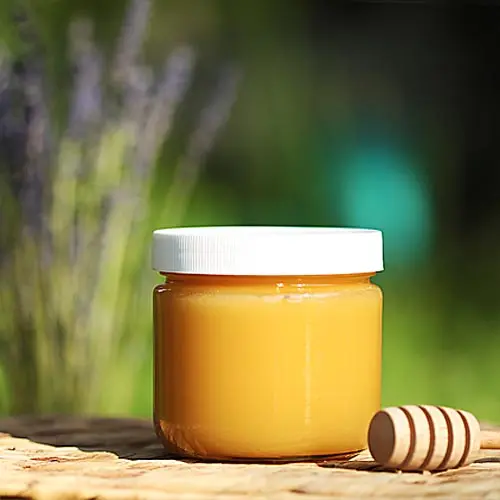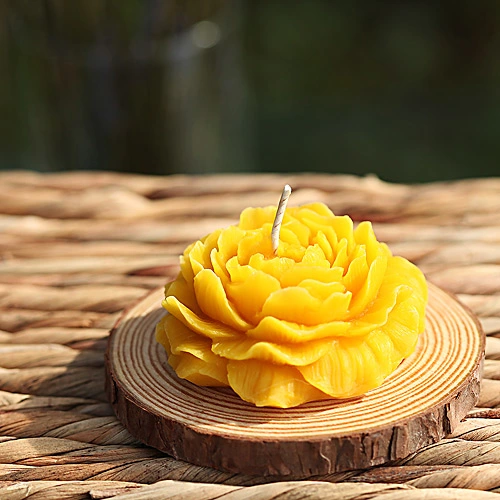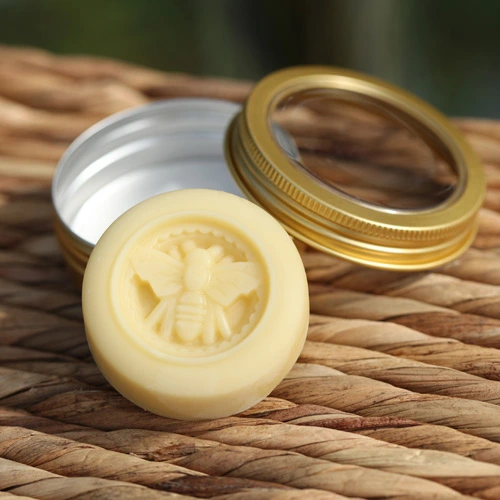Locally Sourced Honey: Discover Nature's Golden Treasure
Family Owned Honey Bee Farm
Farm-Fresh Delights
Pure Raw Honey
Pure, Raw, Rich, Local Wildflower Honey is a sweet, syrupy, golden-colored liquid made by honeybees. Honeybees store honey in the beehive to use for food and nutrients. Raw honey comes directly from the hive. Enjoy in a drink, as a spread, or by the spoonful!
Honeycomb
Honeycomb is a natural product made by honey bees to store honey and pollen. It consists of a series of hexagonal cells constructed from beeswax which generally contain raw honey. You can eat the whole honeycomb, including the honey and waxy cells surrounding it.
Creamed Honey
Creamed honey is considered the crème de la crème of raw honey for good reason with a powerful nutritional profile as well as a luscious texture.
Beeswax Candles
Beeswax candles are the most durable & long lasting candles you can own! They burn brighter, longer, & cleaner than any other type of candle. They have been crafted around the globe for thousands of years.
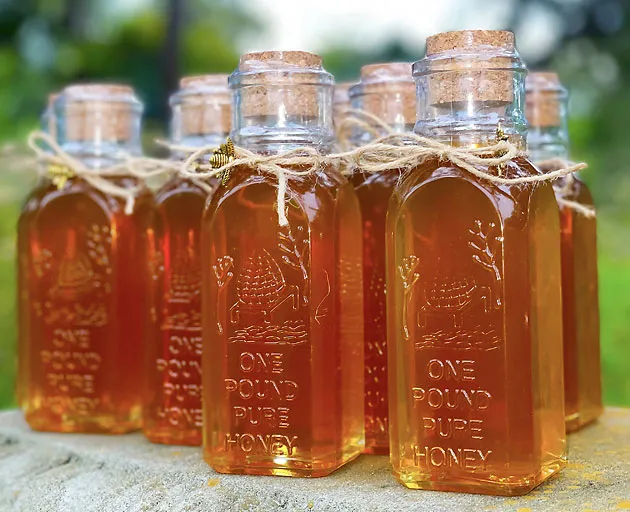
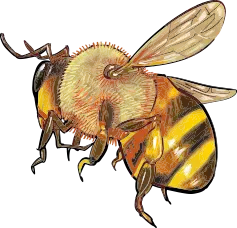
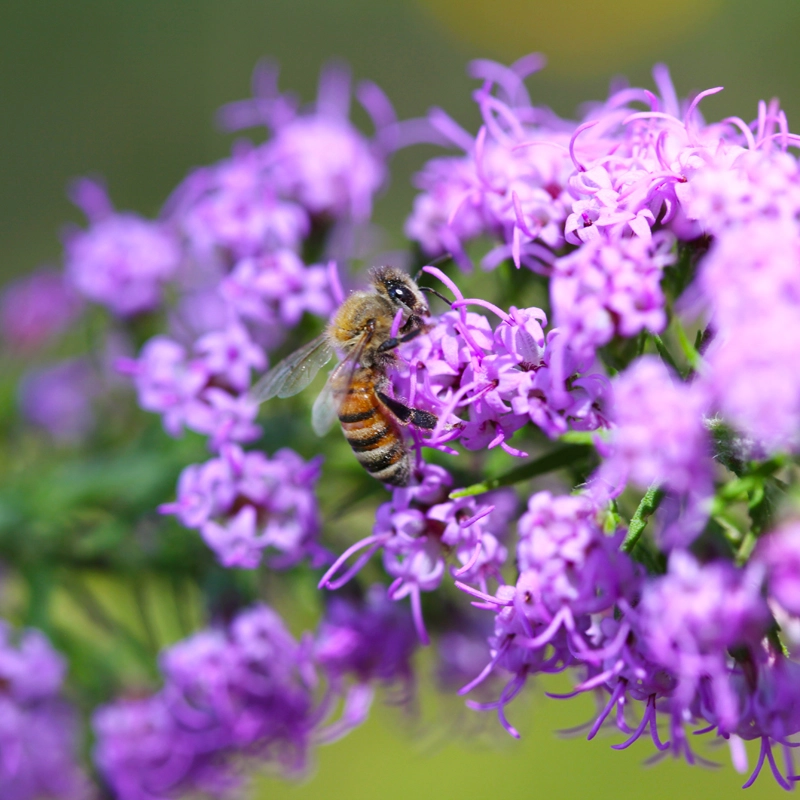
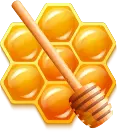
Discover the Best Raw Local Honey in St. Petersburg, Clearwater & Tampa, FL
Looking for raw local honey in St. Petersburg, Clearwater, or Tampa, FL? Explore where to find fresh, unfiltered honey straight from trusted Florida beekeepers.
When it comes to choosing raw local honey in St. Petersburg, Clearwater, or Tampa, FL, nothing beats the taste and benefits of a truly natural product sourced right from your own backyard. Whether you’re looking to boost your health, sweeten your favorite recipes, or support local farms, raw honey is the perfect addition to your pantry.
Top Health and Taste Benefits of Raw Local Honey
Top Reasons to Buy Raw Local Honey in the Tampa Bay
Raw honey is unfiltered and unpasteurized, which means it retains all the natural enzymes, pollen, and antioxidants that commercial honey often lacks. Sourced from local hives in the Tampa Bay area, raw local honey is known to help with seasonal allergies, boost immunity, and offer a more robust flavor profile.
Allergy Relief:
Local honey may help your body build a tolerance to pollen in your region, offering natural relief from seasonal allergies in St. Pete, Clearwater, and Tampa.
Natural Sweetener:
Unlike processed sugar, raw honey offers a nutrient-rich alternative for baking, tea, smoothies, and more.
Support Local Beekeepers::
When you buy raw local honey in St. Petersburg, FL or nearby areas, you support sustainable agriculture and local families.
Eco-Friendly
Local beekeepers play a critical role in pollination and maintaining Florida’s native plants and flowers.
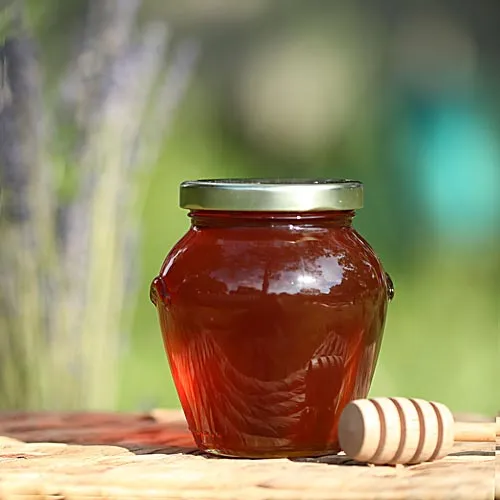

Our Testimonials
Google Reviews
 Bee Citrine offers unparalleled quality and customer service. I often gift Bee Citrine products to colleagues, friends, and family. Everyone is always delightfully impressed! Their products are locally sourced and curated in St. Petersburg, Florida. This is as organic as it gets, folks! Do yourself a favor and stock up on Bee Citrine for gifts this holiday season. You and your loved ones won’t *bee* disappointed!
Bee Citrine offers unparalleled quality and customer service. I often gift Bee Citrine products to colleagues, friends, and family. Everyone is always delightfully impressed! Their products are locally sourced and curated in St. Petersburg, Florida. This is as organic as it gets, folks! Do yourself a favor and stock up on Bee Citrine for gifts this holiday season. You and your loved ones won’t *bee* disappointed!
 Never buying honey or honey products anywhere else! Natalia has the highest quality honey and the best tasting! The variety of options also is amazing when you want to try something different or when you need a specific type of honey/flavor. Also, I love the candles(most divine smell!) and lotion bars which are so soothing, smell incredible, and apply and absorb like no other product I’ve ever tried! Plus, the ingredients are pure and natural. Top notch quality! Exceptional customer service. Just an all around phenomenal small family business!
Never buying honey or honey products anywhere else! Natalia has the highest quality honey and the best tasting! The variety of options also is amazing when you want to try something different or when you need a specific type of honey/flavor. Also, I love the candles(most divine smell!) and lotion bars which are so soothing, smell incredible, and apply and absorb like no other product I’ve ever tried! Plus, the ingredients are pure and natural. Top notch quality! Exceptional customer service. Just an all around phenomenal small family business!
 This honey is like back in my childhood when foods were much more natural and fresh. It tasted and smells amazing. My kids love it! I noticed feeling better with allergies when I eat this honey.
This honey is like back in my childhood when foods were much more natural and fresh. It tasted and smells amazing. My kids love it! I noticed feeling better with allergies when I eat this honey.
 Hands down the best 100% natural honey you can find. Slava & Natalia were so helpful & made the buying process a breeze. One thing that separates them from others is just how many flavors of honey they offer. Cinnamon has been my favorite thus far. Not to mention their honey makes the perfect gift. I'd highly recommend Bee Citrine!
Hands down the best 100% natural honey you can find. Slava & Natalia were so helpful & made the buying process a breeze. One thing that separates them from others is just how many flavors of honey they offer. Cinnamon has been my favorite thus far. Not to mention their honey makes the perfect gift. I'd highly recommend Bee Citrine!
 I cannot say enough amazing things about Bee Citrine - the honey is so delicious and the people behind this company are always so kind and helpful! I’ve gotten 3 different honey products from them, and they are consistently great! I also LOVE that it is local fresh honey!
I cannot say enough amazing things about Bee Citrine - the honey is so delicious and the people behind this company are always so kind and helpful! I’ve gotten 3 different honey products from them, and they are consistently great! I also LOVE that it is local fresh honey!
 The owners of Bee Citrine are wonderful people and they’re products are fantastic! My wife and I bought candles, honey, and creamed honey. We thoroughly enjoyed all of it.
The owners of Bee Citrine are wonderful people and they’re products are fantastic! My wife and I bought candles, honey, and creamed honey. We thoroughly enjoyed all of it.
Explore a World of Flavors
Elevate Your Taste Buds

Allergies: Many people believe that consuming local honey can help alleviate seasonal allergies. The idea is that local honey contains small amounts of local pollen, which may help build tolerance and reduce allergic reactions.
Nutritional Content: The nutritional content of honey is generally similar regardless of its source. Honey is primarily composed of carbohydrates, including glucose and fructose. It also contains trace amounts of vitamins, minerals, and antioxidants. The nutritional composition of honey primarily depends on the floral source rather than its locality.
Environmental Factors: Choosing local honey can have environmental benefits. Supporting local beekeepers encourages local biodiversity and helps maintain healthy populations of bees, which are essential for pollination and ecosystem health.
Quality and Purity: Local honey may have a fresher taste compared to commercially produced honey, as it is often harvested and distributed on a smaller scale. However, the quality and purity of honey depend more on the beekeeping and processing practices rather than its locality.
There are several potential benefits associated with consuming local honey:
Allergies: Some people believe that consuming local honey can help alleviate seasonal allergies. The theory is that local honey contains small amounts of local pollen, and by consuming it, the body may develop a tolerance to the pollen, reducing allergic reactions. However, scientific evidence supporting this claim is limited.
Nutritional Value: Honey, including local honey, contains carbohydrates in the form of glucose and fructose, making it a natural source of energy. It also contains trace amounts of vitamins, minerals, and antioxidants. While the nutritional composition of honey can vary depending on the floral source, local honey is considered to be unprocessed and free of additives or preservatives.
Environmental Benefits: Choosing local honey supports local beekeepers and promotes the health of local bee populations. Bees play a crucial role in pollination, which is essential for the reproduction of many plants and the overall biodiversity of ecosystems. By consuming local honey, you can contribute to maintaining healthy bee populations and supporting local ecosystems.
Taste and Freshness: Local honey is appreciated for its unique flavor profile, which can vary depending on the types of flowers available in the local area. The taste of local honey may reflect the local flora and give it a distinct character. Additionally, since local honey is typically produced and distributed on a smaller scale, it is often perceived as fresher compared to commercially produced honey.
Supporting Local Economy: Buying local honey supports local beekeepers and small-scale agricultural operations. By purchasing local honey, you contribute to the local economy and help sustain local businesses.
The main differences between local honey and store-bought honey lie in their production, sourcing, and processing. Here are some key distinctions:
1. Sourcing and Provenance: Local honey is produced by beekeepers in your specific region or locality. The bees collect nectar from local flowers, resulting in honey that reflects the local flora. Store-bought honey, on the other hand, often comes from various sources and may be blended from different regions or countries to create a consistent product. The specific origin of store-bought honey might not be disclosed or may be a blend of honeys from different regions.
2. Processing: Local honey is minimally processed, with no heating or filtering beyond what is necessary for extraction. We use traditional or artisanal methods, which aims to preserve the natural enzymes, flavors, and potential health benefits of the honey. Store-bought honey often undergoes more extensive processing, including pasteurization and filtration, to improve shelf stability, remove impurities, and prevent crystallization.
3. Labeling and Transparency: Local honey comes with more detailed labeling, including the beekeeper’s information, the location of the hives, and specific floral sources. This transparency allows consumers to have a better understanding of the honey’s provenance. Store-bought honey may have limited information on the label, providing only basic details such as the type of honey and the net weight.
4. Availability and Scale: Local honey is produced on a smaller scale by independent beekeepers or smaller apiaries. It available directly from the beekeepers at local farmers’ markets, specialty stores, or through community-supported agriculture (CSA) programs. Store-bought honey is widely available in supermarkets and grocery stores on a larger scale, sourced from various producers and distributed nationally or internationally.
5. Environmental Impact: Choosing local honey supports local beekeepers, promotes sustainable beekeeping practices, and helps maintain local bee populations. Additionally, local beekeeping practices can contribute to the preservation of local ecosystems and biodiversity. Store-bought honey may come from a variety of sources, some of which may not adhere to the same environmental or sustainability standards as local beekeepers.
1. Raw Honey: Raw honey refers to honey that has not undergone significant processing or pasteurization. It is typically extracted from the hive, strained to remove large impurities like beeswax or bee parts, and then packaged. Raw honey is often preferred by some individuals because it is believed to retain more of its natural enzymes, antioxidants, and potential health benefits. It may have a thicker consistency and contain fine particles, including pollen, propolis, and beeswax remnants.
2. Local Honey: Local honey refers to honey produced by beekeepers within your specific region or locality. The bees collect nectar from local flowers, resulting in honey that reflects the local flora. Many people choose local honey for its potential benefits in supporting local beekeepers, promoting local biodiversity, and enjoying the unique taste that reflects the local environment.
Comparing the two:
– Raw honey can be local if it is produced in your region, and local honey can be raw if it is unprocessed or minimally processed by local beekeepers. So, the two are not mutually exclusive.
– Raw honey is not always local, as it can come from different regions or countries. Similarly, local honey is not always raw, as some local beekeepers may process or filter their honey to varying degrees.
When it comes to the nutritional composition and potential health benefits, both raw honey and local honey can be similar. The primary factors that determine the nutritional content are the floral sources and the processing methods employed by the beekeepers, rather than whether the honey is raw or local.
If you prioritize the preservation of natural enzymes and potential pollen content, raw honey might be preferable. However, if supporting local beekeepers and enjoying honey that reflects your local environment are your priorities, then local honey is the way to go.
